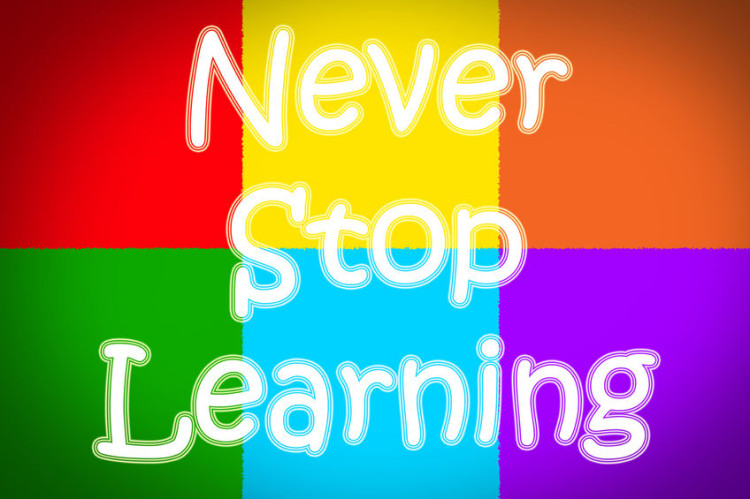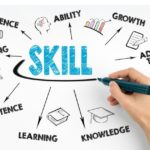Never let schooling get in the way of your education – Mark Twain
Hard and technical skills we are told become outdated as fast as we obtain them, making a commitment to lifelong learning even more important than ever. Content learned in the first year of an engineering degree is said to be out of date before the end of the final year. It has become vital to stay committed to lifelong learning habits. This isn’t about keeping your end up in dinner party conversation.
As professional careers or working lives become extended, workplaces become more age and culturally diverse, staying in touch with the zeitgeist will assume a new significance for all. On top of this many hard skills will need updating. A marketing expert can no longer survive with traditional marketing knowledge alone, but will need digital marketing skills and know how. A lawyer might need business training or soft skill training, a chef will need financial skills, nutritional and legal knowledge. This has possibly always been the case to some degree, but today, with an unprecedented pace of change and individuals having to assume greater responsibility for investment in their careers, it is more important than ever.
Today, with the demands made on us from every angle and attention spans decreasing, even those who understand well the need for lifelong learning, can find it challenging to stay the course.
Here are 12 tips for developing a lifelong learning habit:
1. Have career goals and strategy
Understand your life long career goals and create a career strategy to achieve them, starting with the current year ahead. Carry out a career audit. What are your strengths and personal development needs? Are they in line with your goals? Do a skill set assessment for this year. What do you need to work on for the next step in your plan? Create that plan and stick to it. If you are thinking of a career gap for any reason – parenting leave is one, make sure that you have a strategy for staying up to date and lifelong learning. Many women are shocked at how fast the work place moves on, as they have busied themselves with their domestic roles. Re-entry can be a struggle. During periods of unemployment it is also important to stay focused on lifelong learning.
2. Select a career that challenges you
If you are not in a career or role that stimulates you most of the time (most jobs have some boring elements) now is the time to change. This might be a new profession all together or a new role.
If you need support on this check out my career coaching programmes
3. Prioritise learning
Very often, especially those who have had lengthy and rigorous training, take their foot off the gas once they have qualified, or reached a certain level of seniority.
You don’t want to go there – especially mid-career. Make learning a priority.
4. Make a business case
You company might not be enthused about your interest in wine, but where applicable commit to making a business case for your personal development for corporate sponsorship every year. Even though organisations are tending to invest less in employee training, the worst thing that can happen is your boss can say no.
5. Stay up to date
Create a habit of reading and understanding what’s going on in the world and your sector. Whether this is via a newspaper, online sources, Twitter or Facebook or following influencers and thought leaders on LinkedIn. Create alerts for the topics that interest you and keep an eye open for those that don’t currently – but might in the future. Understanding how world events impact those not directly involved, is important to anticipating trends.
6. Cultivate the right network
Add people to your network who can enrich your skill set, knowledge and experience. Meet and or interact with them regularly if possible.
7. Look for a mentor
Find someone who has walked in your shoes to be your mentor. What wisdom can they share from their own experiences? What would they advise in your position?
8. Be your own brain storming buddy.
Albert Einstein said, “Any man who reads too much and uses his own brain too little falls into lazy habits of thinking.” Start keeping a record of ideas and projects and a journal of your own thoughts. They might come in handy.
9. Put your hand up
Volunteer or position yourself for stretch assignments so you can put into practise the skills that you have learned or develop new ones. It might be a negotiation skill, handling a difficult conversation or even a new hard skill. Make sure you gain maximum use out of it before that too becomes obsolete.
10. Become a mentor
Pay it forward. Share what you’ve learned with someone junior, or even act as a reverse mentor with an older or more senior colleague to consolidate the knowledge you have acquired.
11. De-clutter
Just like your computers, your network, mental hard drive, address book and feed alerts need to be defragged and cleaned up to be at peak performance. De-clutter.
Perhaps you have advanced and are in a position to outsource some of the low value work, or a niche specialist for the more specific technical elements. Let go of people in your network who hold you back.
12. Daily routine
Making lifelong learning part of your daily routine will eventually become a habit. Allocate to begin with 10 minutes a day of “you” time to implement your strategy and achieve your goals so that your future is the one you have planned.
What else would you add?






Pingback: How to Grow a Personal Development Mindset - 3Plus International